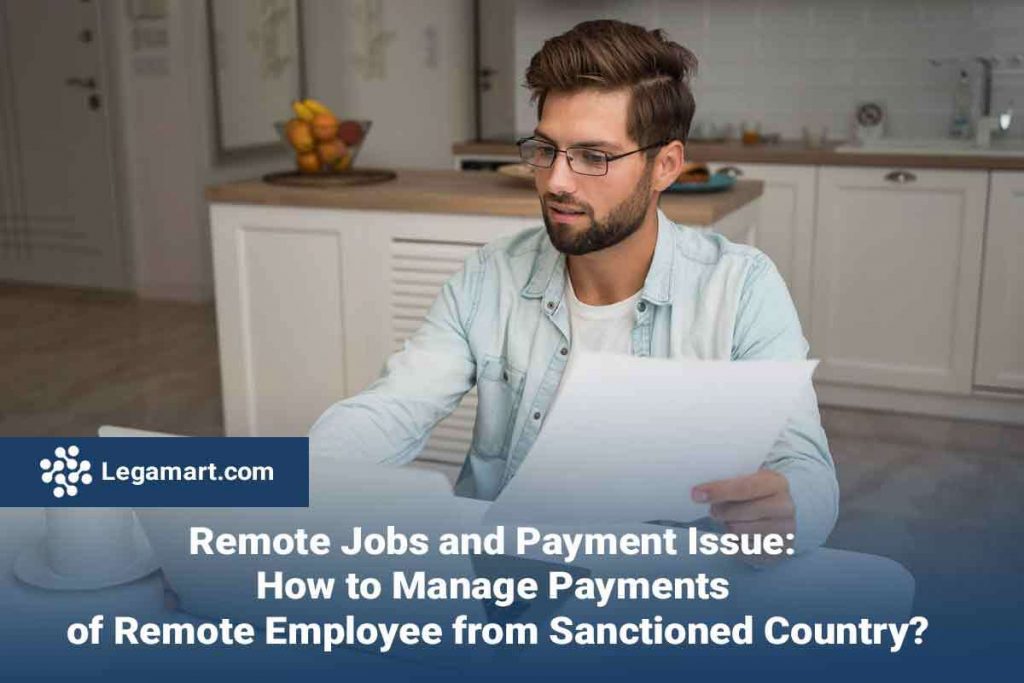Introduction
Remote work is a great way to make money, but it can be difficult for some people. In this article, let’s look at how to manage remote workers from anywhere. Our discussion will also include the benefits of working remotely. Remote working is a crucial aspect of any business, especially if you’re looking for a well-paying position.
Managers and human resources professionals face challenges implementing remote work policies, particularly as COVID-19 increases the number of remote jobs. Among the issues, the most pressing issue is the intersection of remote jobs and payment issues.
According to research from the Society for Human Resource Management, approximately three-fourths (71%) of employers have trouble adjusting to teleworking as a way to do business. Employers have generally accepted that workers’ value is not dependent on where they work and responded positively to workers’ wishes for less office time. Several of the highest-paying tech jobs are now available as remote positions as businesses realize they need a flexible environment to attract developers.
What Kind of Payment Issues of Remote Jobs have?

The manual processing of invoices or using on-premise solutions that require staff to be physically present in the office can lead to new challenges, risks, and costs that must be addressed.
Processing Times are Longer
Using remote working has exposed manual invoice processing’s vulnerability. Closed premises continue to receive invoices, untouched and unprocessed. It has been decided to take turns visiting the office to collect invoices from rectifying the situation. Although they tried their best, the strategy was deeply flawed.
Rotating entry into the office poses a health risk to employees. It is also time-consuming as accounts payable staff collect paper invoices, open them, and review and scan them. As a result, approvals and payments must still be obtained remotely, resulting in a long and inefficient process.
Processing delays significantly affect payment deadlines, as companies miss early payment discounts and incur late payment penalties. Late payments and unpaid invoices in Europe have increased since Covid-19 took hold, according to a Sidetrade report.
When an invoice is forgotten about and goes unpaid due to poor processes, the damage it can do to a vendor relationship can be irreparable. Late payment fees not only damage cash flow but can also ruin vendor relationships in the long run.
An Increased Risk of Fraud
Using a manual system makes it nearly impossible to determine how many invoices are circulated within the organization. The remote working model leaves accounts payable clueless about volume, urgency, and legitimacy of invoices, increasing the risk of fraud.
There has been a significant increase in fraud levels due to criminals exploiting the weaknesses in the processes of finance staff who work from home. Vendors with names that sound like real companies are taking advantage and hoping AP will process their invoice before noticing it.
How to Manage Payment Issues for Remote Jobs?

Managing accounts payable remotely can help capture early payment discounts and speed up processes. Account payable(AP) Automation eliminates the need for employees to physically enter the office, saving them time and protecting their health. As a result of a cloud-based platform, AP can prioritize which invoices to pay to capture discounts while avoiding late payment fees. In addition, it allows an organization to see how many invoices it has unpaid and the volume of invoices it has. By analyzing payment runs, the business can identify areas to reduce costs and make informed decisions about the future.
Secure approval workflows and full visibility into the invoices in circulation within the company make it easier to detect fraudulent invoices.
Automated solutions also offer cloud-based archives that are compliant with remote teams. It is no surprise that Everest Group recently reported that companies were regretful that they hadn’t migrated to the cloud and implemented more automation before the pandemic hit due to the challenges AP faces while working remotely.
Which Nations are Sanctioned by the United Nations?
The US Department of Treasury, Office of Foreign Asset Controls (OFAC) administers. The US imposed various sanctions against Iran, Cuba, and North Korea with severe penalties for violations. Below is the list of types of sanctions –
Comprehensive Sanctions: Most goods, technologies, and services are generally prohibited from direct or indirect imports/exports, trade brokering, financing, and facilitation. An approved exception or license will be required for certain transactions.
Limited Sanctions: Trade in diamonds is one of the specific practices that should be blocked. If specific criteria exist in the regulations for a General License, then most research and business activities can be conducted without an OFAC special license.
Regime or List-Based Sanctions: This blockade targets specific property of foreign governments, regimes, supporters, and individuals that is not necessarily country-specific but that is owned or controlled by, or acting on behalf of, targeted countries or entities. As a collective, such targeted individuals and entities are called “Specially Designated Nationals.”
US persons are not permitted to engage in prohibited transactions, including trade or financial transactions, unless exempted by law or authorized by OFAC. There may be differences between programs because each has different foreign policy and national security goals.
What are Prohibited Transactions?

A prohibition may be imposed on exporting, importing, or selling goods, including research and education. There are restrictions on providing financial services or transactions involving a blocked entity, blocked person, or comprehensively sanctioned country. If you are dealing with an individual or entity in an OFAC-sanctioned country, you should contact UFS Treasury Services.
Types of Prohibited Transactions
A prohibition may apply to exporting, importing, or selling goods, including research and education. There are restrictions on financial services or transactions involving a blocked entity, blocked person, or comprehensively sanctioned country. If you are dealing with an individual or entity in an OFAC-sanctioned country, you should contact UFS Treasury Services.
OFAC License
OFAC licenses allow foreign governments to conduct transactions that would be illegal otherwise. There are two types of licenses: general licenses and specific licenses.
- A general license allows a class of persons to conduct a particular transaction without applying for a license.
- Specific licenses are written documents issued by OFAC to a particular person or entity authorizing a specific transaction.
Those who engage in transactions governed by general or specific licenses must strictly comply with the terms of the licenses.
How are International Payment Issues in Sanctioned Countries?

Despite these economic sanctions, people have found ways to get around them. Nevertheless, you face severe legal and financial penalties for doing so. Money laundering charges could be brought against you by the US if you route your funds through a country without sanctions against your intended destination. When you own a bank account in another country, research the rules regarding sending money to sanctioned nations from that account. Cuba and Iran are countries where the US can give special permission for you to send money to family members. There may be a limit on how much you can send and how much you can prove your funds are not for commercial purposes.
If you’re unsure whether you can send money to sanctioned countries, assume that sending funds from the US is illegal unless you speak with a lawyer.
It is usually a requirement of labor laws that remote workers receive their wages in the local currency. Due to the volatility of the foreign exchange market, this can pose a problem. A majority of developed nations’ currencies (Great British Pound, US/CA/AU Dollar, Euro, Chinese Yen, etc.) are pegged to each other. In contrast to stable currencies, fluctuating currencies can go up or down suddenly in value.
A situation like this means that someone has to bear the costs; usually, it’s the employer. Employers can specify other currencies in their contracts or a fixed exchange rate to reduce the risk of currency fluctuations. Paying employees in cryptocurrency is also an example of a typical local currency rule. Paying remote employees can be made easier by outsourcing payroll to a global PEO firm. Global PEOs, such as Horizons, provide comprehensive payroll, employment compliance, and tax services to remote employees worldwide.
Your PEO operates as the local employer for your remote employees since it has a legal entity in the place where they are, relieving much of your organization’s administrative burden.
Conclusion
Our lives are becoming more reliant on remote work, and jobs are becoming almost borderless. Technology professionals are increasingly hired by companies based outside of their home countries. In one sense, companies have a larger pool of talent to hire from, and they can find the best professionals everywhere. While remaining at home, tech professionals can job hunt internationally.
It means more opportunities, more reputable companies, possibly higher salaries, and a more flexible schedule. The employer typically takes the first step in hiring you and paying you fairly, but in some cases, you may have to take the initiative if you want the job and paid correctly. During the hiring process for a company that doesn’t have this global payroll thing down, you can be the one to make sure that this one misstep doesn’t deter your hiring. Cheques are issued by outsourced payroll providers who handle computations, withholdings, and compensation. However, this does not ensure compliance with local laws regarding taxation, immigration, or labor.
In case your employer pays you in late payments or doesn’t pay your invoices at all, despite repeated requests and reminders, then it’s important that you consult a lawyer and learn about the effective remedies. We at LegaMart can provide you with the best solutions to your legal problems with our highly qualified lawyers and years of experience in the field. Check out our LegaMart directory and get answers to all your questions.




